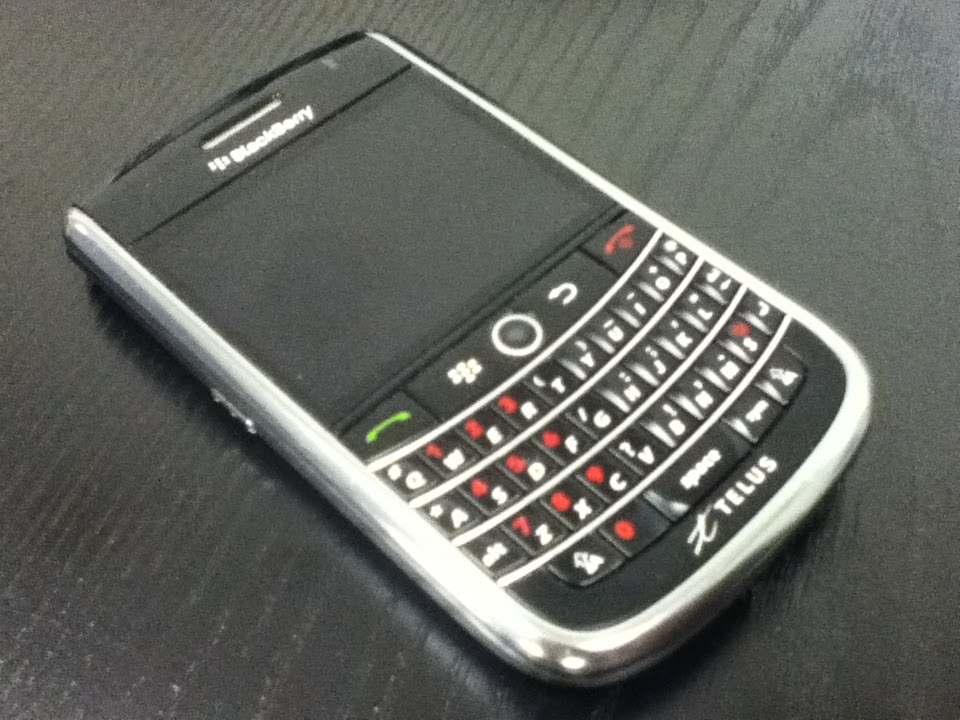Getting a Cheaper Phone Plan in Canada
 |
| Going back to my BlackBerry. |
The internet was slow at times. However, when connected to WiFi, the phone was decent to use.
The coverage area outside Toronto was spotty, but we rarely went outside the city so that wasn't an impact on my decision to port my phone number from Rogers.
This changed a few months after I purchased the phone when I updated the system to Android 4.0. Yikes! In hindsight, I should have left my phone on Android Gingerbread*. The new system made my phone slower to use. It was still okay, so I left my phone as is.
As more system updates rolled out, my phone became progressively slower. Eventually, I wasn't able to use my phone for the simplest tasks such as checking my email, Twitter, or the weather. I was forced to uninstall some apps that were taking too many resources from the phone that allowed for relatively normal operation. I dealt with it and moved on.
Almost two years after purchasing my phone, there was great uncertainty over Mobilicity's future. They wanted to sell their company to Telus and had been denied by the Federal government. Not knowing what was happening with this company, I decided to port my phone to a different company.
The problem with this idea is that this particular Nexus S, although unlocked, could only work with another phone company that used the AWS spectrum. That meant going to Wind Mobile or Public Mobile. Since Public Mobile was purchased by Telus, they no longer offered unlimited data plans. That meant my only alternative was with Wind Mobile.
In December 2013, I signed up for Wind's $30/month unlimited everything plan and ported my number from Mobilicity. I was disappointed in paying an extra $5 a month, but at least the uncertainty of the company going bankrupt was gone.
Well, the service became worse. I live on the edge of Wind Mobile's coverage area. Sometimes, I wouldn't get a signal from home. Other times, while driving in Toronto, wifey couldn't get the phone to dial out. My phone got even worse as now I wasn't able to make calls when I needed to make calls. When I managed to get calls connected, it would get dropped 50% of the time (I rarely make calls on my phone. I prefer to text). Internet was just as spotty and combined with the hardware issues on my phone, I couldn't even open my emails. I would get notifications, but trying to open the emails would cause the app to crash or freeze.
In essence, I was paying $30/month for a phone that couldn't dial out, that couldn't check my emails, that only gave me notifications that I received emails, and that I could use for texting.
Most of the issues I had with the phone were hardware related. However, some were problems with the service provider.
A month ago, I looked into other options**. Since I wasn't using much data (more like not using any at all), I decided that a prepaid plan was fine for me. My in-laws already have a Rogers Pay As You Go prepaid phone plan and I was subscribed to Rogers before I switched to Mobilicity. I found their service okay, but I didn't like putting money into the phone each year that rarely got used. Before I switched to Mobilicity, my balance on my Rogers Pay As You Go account was over $170. I was a little too aware of using my phone knowing it cost money when I sent a text message or made calls***.
Finally, I stumbled upon Fido's Pay by the Year prepaid phone plan. The plan costs $85/year + 75¢/month for the 911 access fee. I had the option of unlimited local evening and weekend minutes or unlimited texting. The plan also comes with 100 minutes/year. Additional minutes are charged at 40¢/minute. Since I mostly text, I decided to get the unlimited texting option.
By switching to Fido, I would no longer be able to use the Nexus S. That was fine by me since the phone was just taking up space in my pocket. But that meant I needed a different phone. Fortunately, wifey and I have a collection of old phones at our disposal. The phone I used before switching to Mobilicity was a BlackBerry Tour. I got the BlackBerry for free (brand new out of the box as well), but I needed to pay $50 to unlock it. This was before the government made it a requirement for phone companies to unlock phones if you own the phone outright. The downside with the phone is that this BlackBerry doesn't have WiFi built in. Since I didn't use my Nexus S for Internet, it wasn't a step backwards.
I took my Nexus S and BlackBerry to the nearest Fido and had them port the number. Since wifey uses Fido as well, we got her to refer me. This will give her $25 off her phone bill after 90 days and give me $25 in prepaid credit after 90 days. Free money? I'll take it. I needed to pay for the sim card, but that's normal with every other phone company. I also needed to pay for a $100 prepaid voucher. That was no big deal either since I wanted some wiggle room in case I go over my allotted 100 minutes and they needed the money in the account to deduct the $85 for the Pay by the Year plan. After 10 minutes, the process was done.
Before we got home, the number was ported and I was officially on the Fido network.
I am happy with my decision. Before, I was paying $30/month ($33.90/month with tax) for a phone that could send and receive unlimited texts. Now, I am paying $9.42/month ($113/year for a prepaid voucher) for a phone that could send and receive unlimited texts. Basically the same plan but with better service! In total, this will save me $293.80 a year. Not a lot of money, but that's money that will go to retirement savings.
Wifey was especially happy. She now has the peace of mind knowing that I can be reached no matter where I am in Canada.
Hard to put a price on that.
*After I transferred my contacts from my Nexus S to BlackBerry, I downgraded the system back to Gingerbread. My phone is decent again. However, I only use it for Facebook Messenger and to notify me of new emails when I'm at home. That's $300 for an expensive email notification system and app to send messages on Facebook. Sheesh!
**Not many choices in Ontario. You have the Robelus (Rogers, Bell, & Telus) oligopoly and their "discount" carriers and a bunch of fringe operators. In Saskatchewan, where the Government operates SaskTel, the prices of phone plans are dramatically decreased. It's not often one wishes to live in Saskatchewan, but this is one of those times for many Canadians.
***Before we switched, wifey and I texted each other just to consume the balance. We got my balance down to a few dollars by the time I switched.


Comments
Post a Comment